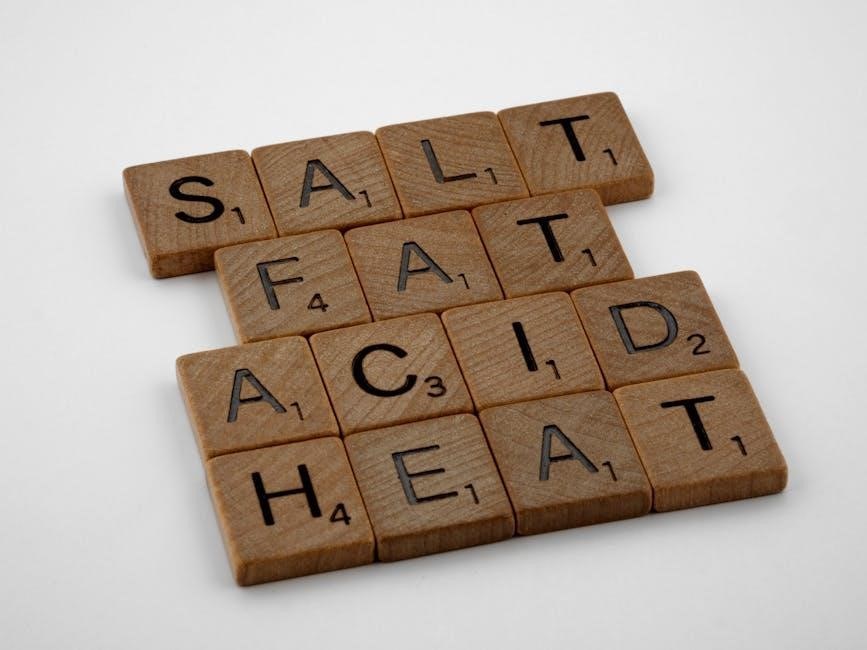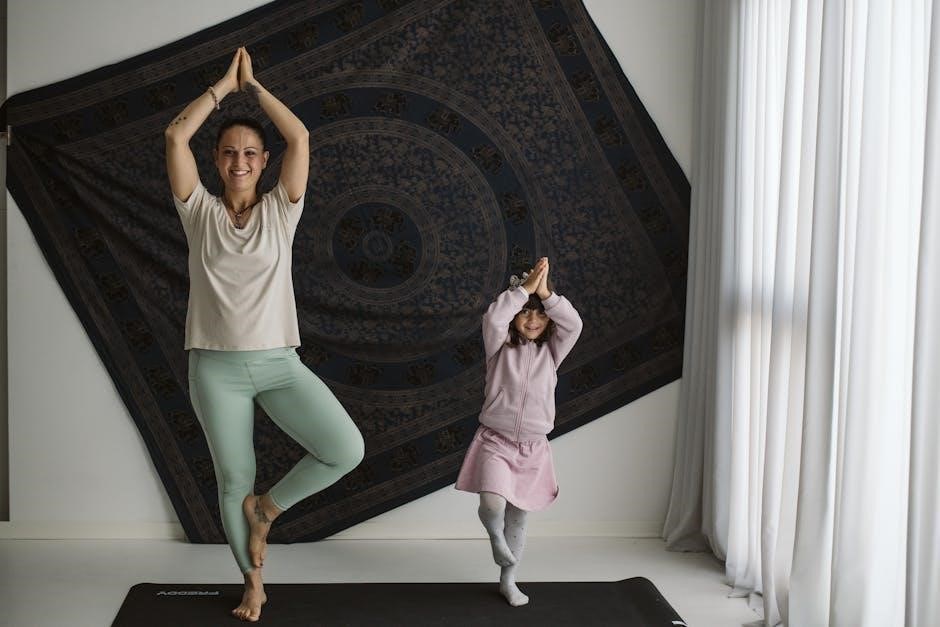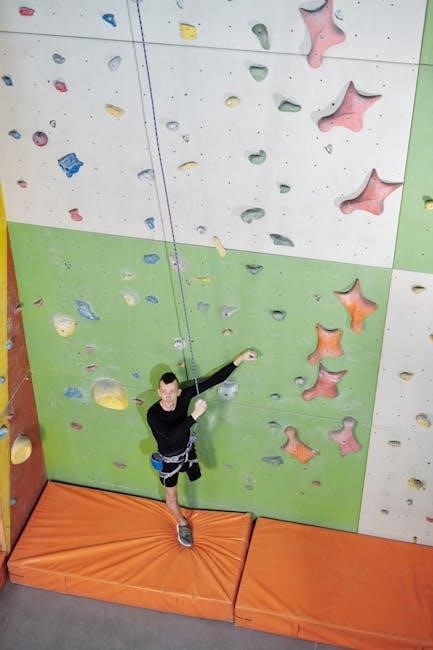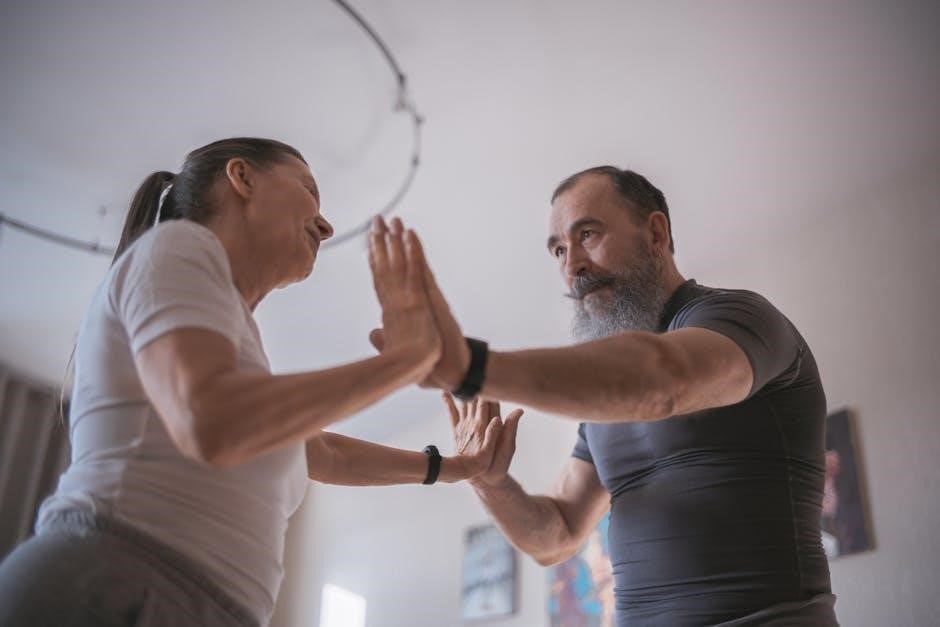Engage your mind with fun and educational trivia questions about mental health! These quizzes aim to promote awareness, reduce stigma, and make learning about mental well-being enjoyable for everyone․
Why Mental Health Awareness Matters
Mental health awareness is crucial for fostering understanding, reducing stigma, and encouraging open conversations about well-being․ By engaging with fun trivia questions, individuals can learn about mental health in an approachable and non-intimidating way․ These activities not only educate but also promote empathy and compassion, helping to break down societal barriers․ Awareness empowers people to recognize signs of mental health challenges and seek support, ultimately creating a more inclusive and supportive community․ Trivia serves as a powerful tool to normalize discussions around mental health, making it easier for everyone to prioritize their well-being․
Trivia is a dynamic tool for educating people about mental health while keeping them engaged and entertained․ By presenting information in a fun, interactive format, it makes complex topics more accessible and less intimidating․ Trivia encourages participation, fostering a sense of community and collaboration․ It also helps retain knowledge better than traditional methods, as the competitive and enjoyable nature of quizzes motivates learners․ Through trivia, mental health facts and misconceptions can be addressed in a way that resonates with diverse audiences, making education both effective and enjoyable․ This approach ensures that learning about mental health is not only informative but also memorable and impactful․ Explore fascinating facts about mental health! Resilience is the ability to recover from challenges․ The amygdala manages emotions, and mindfulness reduces stress․ These insights offer a glimpse into the mind’s complexity․
Understanding key terms is essential for grasping mental health concepts․ Resilience refers to the ability to recover from adversity․ Mindfulness is the practice of staying present to reduce stress․ DSM-5 is the manual used to diagnose mental disorders․ CBT (Cognitive Behavioral Therapy) helps change negative thought patterns․ Anxiety disorders involve excessive fear or worry․ Self-care involves activities that promote emotional and physical well-being․ These definitions form the foundation of mental health discussions and trivia, making them vital for awareness and education․ The history of mental health is marked by significant milestones that have shaped our understanding and treatment of mental well-being․ In 1949, the first Mental Health Awareness Week was established to promote education and reduce stigma․ The 1960s saw the development of Cognitive Behavioral Therapy (CBT), a groundbreaking approach to treating mental health disorders․ Wilhelm Wundt, known as the father of modern psychology, laid the foundation for psychological research in the late 19th century․ Additionally, May is recognized as Mental Health Awareness Month in the U․S․, emphasizing the importance of open conversations about mental health․ These milestones highlight the progress made in mental health care and awareness․ Physical activity boosts mood by releasing endorphins, which act as natural mood enhancers․ Regular exercise reduces stress, improves sleep, and increases self-esteem, promoting overall mental well-being․ Physical activity releases endorphins, which are natural mood lifters․ Exercise reduces symptoms of anxiety and depression, improving emotional well-being․ Activities like yoga, jogging, or swimming promote relaxation and provide a sense of accomplishment․ Regular movement enhances self-esteem and cognitive function, fostering a positive outlook․ Even short workouts can alleviate stress and boost energy levels․ Consistency is key, as it creates long-term benefits for mental health․ Engaging in enjoyable exercises makes maintaining a routine easier, further supporting mood enhancement and overall well-being․ Incorporating enjoyable physical activities into your routine can significantly enhance mental well-being․ Yoga combines mindfulness with movement, reducing stress and improving flexibility․ Jogging and swimming are excellent for releasing endorphins, which boost mood․ Walking or cycling outdoors connects you with nature, uplifting your spirit․ Dancing offers a fun way to express emotions and relieve tension․ Tai chi and Pilates promote balance and relaxation․ Even simple stretches or mindfulness exercises can calm the mind․ Consistency is key, as regular activity fosters long-term mental health benefits․ Engaging in these activities with others also strengthens social connections, further supporting emotional well-being․ Debunking myths about mental health is crucial for fostering understanding․ Common misconceptions include believing mental illness is a choice or that therapy is only for severe cases․ Education helps dispel these myths, encouraging open conversations and reducing stigma․ Trivia games can play a role in this by presenting facts in an engaging way, making learning about mental health accessible and fun for everyone․ Mental health stigmas often stem from misinformation and fear, leading to misconceptions like “mental illness is a choice” or “only weak people struggle․” These beliefs prevent many from seeking help․ Trivia games can address these issues by presenting facts in a fun, non-threatening way, encouraging open dialogue and empathy․ By engaging people in light-hearted quizzes, we can debunk myths and foster understanding․ This approach makes mental health discussions more accessible, helping to break down barriers and reduce the shame associated with seeking support․ Education through entertainment is a powerful tool in combating stigma․ Test your understanding of mental health with engaging true or false questions! For example, “True or False: Everyone has a mental illness?” (False—everyone has mental health, but not everyone has a mental illness)․ These questions cover a range of topics, from common misconceptions to surprising facts․ Did you know that “Exercise releases endorphins that improve mood” is true? Or that “8-10 hours of sleep are recommended for optimal mental health” is also true? These questions make learning interactive and fun, while clarifying myths and encouraging deeper exploration of mental health topics․ Discover a collection of fun and creative trivia questions about mental health! These engaging quizzes cover psychology, emotions, and brain facts to entertain and educate․ Lighten the mood with fun mental health-themed jokes and riddles! Why did the therapist bring a notebook? To track thoughts, of course! These playful questions and puns, like “Why don’t therapists tell secrets? They’re great at keeping things confidential!” make learning about mental health engaging and approachable․ Jokes such as, “What do you call a therapist who loves coffee? A caffeine-ologist!” add humor while sparking conversations about emotional well-being․ These riddles not only entertain but also encourage reflection on mental health topics in a relaxed and creative way․ Discover fascinating and quirky facts about the human mind! Did you know your brain uses 20% of your body’s energy despite being only 2% of its mass? Or that you produce up to 70,000 thoughts daily? Learn how serotonin influences happiness and why laughter is contagious․ These intriguing tidbits make mental health engaging and relatable․ Such facts highlight the mind’s complexities, fostering curiosity and deeper understanding of our emotions and behaviors․ Mental health awareness is vital for fostering understanding and reducing stigma․ By engaging with fun trivia, we empower individuals to prioritize their well-being and support others․ Mental health trivia offers a unique way to combat stigma by making conversations about mental well-being approachable and engaging․ Through fun and educational questions, individuals gain knowledge and empathy, fostering a deeper understanding of mental health issues․ This interactivity helps normalize discussions, breaking down stereotypes and encouraging open dialogue․ By presenting mental health topics in an accessible format, trivia games create a safe space for people to learn and share experiences, ultimately reducing the stigma surrounding mental health and promoting a culture of acceptance and support․ Mental health trivia serves as a powerful tool for sparking meaningful conversations about mental well-being․ By presenting topics in a fun and engaging format, it creates a relaxed environment where individuals feel comfortable sharing their thoughts and experiences․ These discussions help break down barriers and foster empathy, encouraging participants to open up about their struggles and successes․ Trivia also educates people about mental health, reducing misunderstandings and promoting a culture of understanding․ Through these interactions, individuals gain confidence to speak openly, fostering connections and mutual support․The Role of Trivia in Education and Engagement

General Mental Health Facts and Trivia
Key Terms and Definitions
Historical Milestones in Mental Health


The Benefits of Exercise for Mental Health

How Physical Activity Impacts Mood
Recommended Activities for Well-being

Mental Health Myths and Misconceptions
Common Stigmas Surrounding Mental Health
True or False Questions to Test Your Knowledge

Fun and Creative Trivia Questions
Jokes and Riddles Related to Mental Health
Quirky Facts About the Human Mind
How Trivia Can Help Reduce Stigma
Encouraging Open Conversations About Mental Health

Leave a Reply
You must be logged in to post a comment.